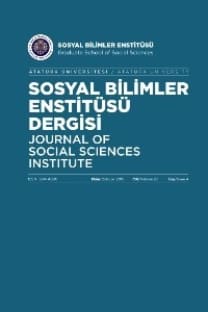Eski ahit metinlerinde J. Calvin'in faiz yorumu
J.Calvin, Tesniye metinlerinin yeni ekonomik gerçeklere kesinlikle uygulanamayacağını anlamış ve mal olarak alınan veya tüketim için kullanılan borçlanma ile üretim için alınan borçlar arasında çok önemli bir ayrım yapmıştır. Bunlardan ilki, borçlunun geçimi için yardım maksatlı olduğu ve verimsiz şeylere harcandığı için, tazmini için alacaklıya yetki vermiyordu. Zira fakir insanlar kendi özel tüketimi için borç para almaktaydılar. İş borçları olarak adlandırılan ikinci borçlanma halinde ise, borçlu kendi işine katarak bundan bir kazanç sağlayabilmekte olduğundan, bunu tazmin etmesine veya ödülünü vermesine izin verilebilirdi. Calvin, Eski ve Yeni Ahit metinlerinin faiz karşılığı borçlanma ile gerçekten yalnızca ilk şekliyle ilgilenmiş olduğuna dikkatleri çekmesinde tamamıyla haklıydı. Bu nedenle Calvin, fakir insanlardan alınan faizi kınayan önceki hukukçuların kullandığı Eski ve Yeni Ahit metinlerini tamamıyla ve açıkça bir kenara iterek geçersiz saymamıştır.
J.Calvin's interest interpretection in old testament texts
J. Calvin realized very quickly that Deuteronomic texts could not be applied to certain new economic realities. He made an important distinction between the loan in kind or for consumption on the one hand, and the loan for production on the other. The former, being only a loan of assistance and unproductive for the debtor, warrants no compensation. Because the poor man takes the loan for his private consumption. In the case of the latter, also called the business loan, the debtor could make a profit, when he adds his own work, so it is permissible to recompense him. Calvin was right to notice that the Old and New Testament texts that deal with loans at interest really concern the former. For this reason Calvin did not purely and simply set aside the Biblical texts used by previous canonists who condemned the practice taking interest from the poor man.
___
- Bieler, A. (1964). The social humanism of Calvin, Richmond, London: John Knox Press.
- Bouwsma, W. J. (1988). Calvin: a Sixteenth-Century Portrait, New York: Oxford University Press.
- Cleary, P. (1914). The Church and Usury: An Essay on Some Historical and Theological Aspects of Money-Lending, M H Gill, Dublin.
- Davies, A.T. (1946). Calvin and the İnfluence of Protestantism on National Life and character, H.E. Walter, London.
- Dempsey, B.W.S.J. (1948). Interest and Usury, D. Dobson, London.
- Donald, D.W.A. (1975). Compound İnterest and Annuities-Certain, London: Heinemann Press.
- Fenton, R. (1980). The Usury Debate in the Seventeenth Century, New York: Arno Press.
- Hawawini, G.A. (1972). The History of İnterest Approximations, New York: Arno Press.
- Hunter, A.M. (1950). The teaching of Calvin, Levell, Los Angeles.
- Jeremy D.J. (1988). Religion, Business, and Wealth in Modern Britain, Routledge, London.
- McGrath, A.E. (1990). A Life of Calvin: a Study of the Shaping of Western Culture, Basil Blackwell, Cambridge.
- McNeill, J.T. (1967). The History and Character of Calvinism, New York: Oxford University Press.
- Murray, J. (1960). Calvin on Scripture and Divine Sovereignty, London: Baker Book House.
- Noonan, J.T. (1957). The Scholastic Analysis of Usury, Cambridge: Harvard University Press.
- Noth, M. (1981). The Deutoronomistic History, New York: Sheffield Presss.
- Parker, T.H.L. (1971). Calvin’s New Testament Commentaries, London: SCM Press.
- Parks T. (2005). Medici Money: Banking, Metaphysics and Art in Fifteenth Century Florance, New York: W.W.Norton.
- Pica J.N. (1962). The Banking and Finance Among Jews in Renaissance Italy, New York: Bloch Pub.
- Roover R. (1974). Business Banking, and Economic Thought in Late Medieval and Early Modern Europe, Chicago: University of Chicago Press.
- Ryn, F.W. (1924). Usury and Usury Laws, Boston: Houghton Mifflin Company.
- Schmidt, A.M. (1960). Calvin and the Calvinistic Tradition, New York: Harper Publ.
- Wauzzinski, R.A. (1993). Between God and Gold: Protestant Evangelicalism and the Industrial Revolution, London: Fairleigh Dickinson University Press.
- Wendel, F. (1963). Calvin: The Origins and Development of his Religious Thought, Harper & Row, New York,
- Wilson, T. (1965). A Discourse Upon Usury, M Kelley, New York.
- Wright, W.J. (1988). Capitalism, the State, and the Lutheran Reformation: Sixteenth-century, Ohio: Ohio University Press.
- ISSN: 1304-4990
- Yayın Aralığı: Yılda 4 Sayı
- Yayıncı: Atatürk Üniversitesi Sosyal Bilimler Enstitüsü Müdürlüğü
Sayıdaki Diğer Makaleler
Eski Ahit Metinlerinde J. Calvin’in Faiz Yorumu
İkinci Meşrutiyet Devrinde Meclis-i Mebucan’ca Düşürülen İlk Kabine: Kâmil Paşa Hükümeti
İkinci Meşrutiyet Devrinde Meclis-i Mebucan'ca düşürülen ilk kabine: Kâmil Paşa hükümeti
Bankaların Yeni Risk Düzenlemeleri Kapsamında Basel II ve Kobiler
Fakir Baykurt’un Yılanların Öcü Adlı Romanına Oluşumsal Yapısalcı Bir Yaklaşım
İbn Sina'nın selbî yorumlama metodu
